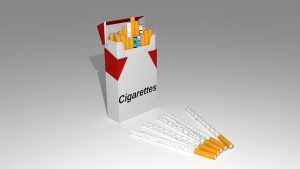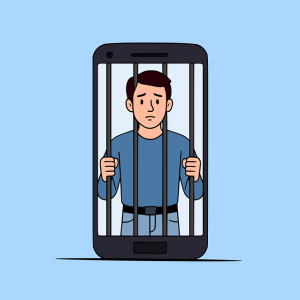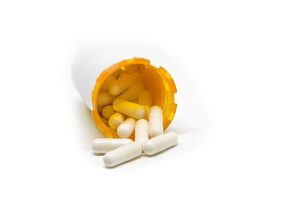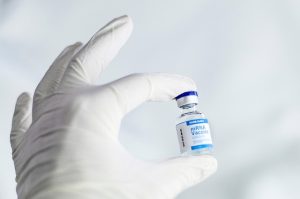New Jersey Drug Rehab Comparison: Alternatives to Recovery Centers of America
New Jersey offers a comprehensive selection of drug rehab options for individuals seeking treatment for substance use disorders. The state's facilities, including Recovery Centers of America and The Caron Foundation in Pennsylvania, provide a range …….

New Jersey offers a comprehensive selection of drug rehab options for individuals seeking treatment for substance use disorders. The state's facilities, including Recovery Centers of America and The Caron Foundation in Pennsylvania, provide a range of evidence-based recovery programs with tailored treatment modalities, including residential care, detoxification services, medication-assisted treatment (MAT), counseling, therapy sessions, and robust aftercare support. New Jersey Addiction Services (NJAS) also offers outpatient treatments to cater to diverse needs. Additionally, the state's Department of Human Services provides public healthcare resources for addiction treatment. Prospective patients should evaluate facilities based on location, cost, treatment philosophy, and aftercare options to find a suitable program that aligns with their unique recovery journey. It is essential to review patient testimonials and compare services across both residential and outpatient programs, considering the level of care necessary to address the comprehensive nature of addiction, which includes physical health, emotional well-being, and spiritual recovery. These centers aim to support sustained sobriety through expert care, personalized treatment plans, and a multifaceted approach that includes individual counseling, group therapy sessions, CBT, DBT, and motivational interviewing. Aftercare programs are crucial for continued support post-treatment. For those affected by the opioid crisis, MAT is available as an effective alternative to traditional treatment methods, offering a combination of medications, counseling, and behavioral therapies to aid recovery from opioid addiction. Whether seeking inpatient or outpatient care, New Jersey's drug rehab facilities are equipped to provide comprehensive support for individuals on the path to recovery.
1. The landscape of drug rehabilitation in New Jersey presents a variety of options beyond Recovery Centers of America (RCA), each with its distinct approach and treatment modalities.
2. These alternatives encompass a spectrum of services, including comprehensive inpatient and outpatient care, medication-assisted treatment (MAT), diverse therapy options, tailored aftercare programs, and supportive group sessions, catering to individual needs.
3. An evaluation of the pros and cons of these rehab centers is essential for understanding their effectiveness and accessibility, ensuring potential patients can make informed decisions about their care.
4. Patient reviews for RCA are informative, offering a comparison to feedback from other New Jersey rehab facilities, highlighting elements such as staff qualifications, facility maintenance, and overall patient satisfaction.
5. The reviews provide insights into the perceived effectiveness and reputation of RCA in relation to its competitors within the state.
6. Drug rehab centers across New Jersey offer a wide range of services beyond those provided by RCA, including innovative treatments and holistic approaches, addressing the complex needs of individuals battling addiction.
7. These centers may also offer additional resources, such as employment assistance or housing solutions post-rehabilitation, to support long-term recovery.
8. Considering alternative rehab centers in New Jersey offers various advantages and disadvantages when contrasted with RCA, from cost and location to program specificity and staff expertise.
9. Personal preferences play a crucial role in the decision-making process, influencing choices based on privacy needs, family proximity, or preferred treatment philosophies.
10. A balanced view suggests that while patients may gain certain benefits from choosing different centers, they might also forgo specific advantages offered by RCA. This article aims to navigate these considerations, providing a clear overview of the alternatives to Recovery Centers of America for drug rehab in New Jersey and their respective service offerings, reviews, pros, and cons.
- What Are the Alternatives to Recovery Centers of America for Drug Rehab in New Jersey?
- – Explore various drug rehab centers across New Jersey, highlighting their unique approaches and treatment modalities.
- – Discuss the range of services offered by these alternatives, including inpatient and outpatient care, medication-assisted treatment (MAT), therapy options, aftercare programs, and support groups.
- – Compare the pros and cons of each alternative, emphasizing their effectiveness, accessibility, and individualized care.
What Are the Alternatives to Recovery Centers of America for Drug Rehab in New Jersey?

For individuals seeking drug rehab services in New Jersey, alternatives to the Recovery Centers of America abound, each offering unique treatment modalities tailored to diverse needs. The state boasts a robust network of addiction treatment facilities that are well-equipped and staffed by professionals dedicated to providing evidence-based recovery programs. Facilities like The Caron Foundation in nearby Pennsylvania also attract those looking for comprehensive care close to New Jersey’s borders, offering residential treatment, detoxification services, and extensive aftercare support. Other notable options include the New Jersey Addiction Services (NJAS) which provides a spectrum of outpatient services, including medication-assisted treatment (MAT), counseling, and therapy sessions. Additionally, the state’s Department of Human Services offers resources and support for those who prefer a public healthcare approach. Prospective patients should evaluate each option carefully, considering factors such as location, cost, treatment philosophy, and aftercare availability to determine the most suitable drug rehab program in New Jersey for their specific circumstances. It’s advisable to review patient testimonials and compare services, including both residential and outpatient programs, to make an informed decision about embarking on the recovery journey.
– Explore various drug rehab centers across New Jersey, highlighting their unique approaches and treatment modalities.

Across New Jersey, a multitude of drug rehab centers offer specialized care to individuals seeking recovery from substance use disorders. These centers are renowned for their diverse treatment modalities tailored to meet the unique needs of each patient. For instance, some centers in places like Newark and Trenton implement a holistic approach that encompasses not only medical and psychological treatments but also integrates wellness activities such as yoga and meditation. This comprehensive strategy addresses the physical, emotional, and spiritual aspects of addiction, promoting long-term sobriety. Additionally, these facilities often employ evidence-based therapies like cognitive-behavioral therapy (CBT) alongside support groups to foster a structured environment that encourages accountability and community support. The dedicated professionals at these centers work diligently to provide personalized care, ensuring that each individual’s treatment plan is optimized for their specific circumstances. This personal touch often makes the difference in the recovery journey, as it allows for a more effective and tailored approach to drug rehab in New Jersey. Patients can explore options ranging from residential programs to outpatient services, all designed with the goal of providing comprehensive support for sustained recovery.
– Discuss the range of services offered by these alternatives, including inpatient and outpatient care, medication-assisted treatment (MAT), therapy options, aftercare programs, and support groups.

Recovery Centers of America provide comprehensive treatment for individuals struggling with substance use disorders, and there are various alternatives offering similar services across New Jersey. These alternatives encompass a spectrum of care to address the multifaceted nature of addiction. Inpatient programs offer structured environments where individuals can receive intensive therapy and support away from triggers and negative influences. Outpatient care allows for more flexibility, enabling patients to continue with their daily responsibilities while receiving treatment. Medication-assisted treatment (MAT) is a critical component of care in many of these alternatives, utilizing medications to manage withdrawal symptoms and cravings, thereby increasing the likelihood of sustained recovery.
Therapy options within these New Jersey-based drug rehab facilities are diverse, ranging from individual counseling to group therapy sessions, which can include cognitive-behavioral therapy (CBT), dialectical behavior therapy (DBT), and motivational interviewing. Aftercare programs are designed to transition patients from intensive treatment back into society with a support system in place. These programs often involve ongoing therapy, peer support groups like Alcoholics Anonymous or Narcotics Anonymous, and regular check-ins with healthcare providers. Support groups provide a community of individuals who share similar experiences, fostering a sense of belonging and mutual encouragement for long-term sobriety. Each of these services plays a crucial role in the recovery journey, tailored to meet the unique needs of each individual.
– Compare the pros and cons of each alternative, emphasizing their effectiveness, accessibility, and individualized care.

When considering the landscape of addiction recovery in New Jersey, individuals often explore various alternatives to traditional drug rehab centers. Among these options, outpatient programs offer a blend of flexibility and structured support, allowing patients to receive care while maintaining their daily responsibilities. Inpatient facilities, on the other hand, provide a more immersive treatment experience with around-the-clock supervision and care, which can be crucial for those requiring a higher level of monitoring due to the severity of their addiction. Each option has its merits; outpatient programs offer greater accessibility and individualized care without the need for temporary relocation, while inpatient centers provide a structured environment that can be more effective for some individuals who require a more intensive treatment approach.
Another alternative is medication-assisted treatment (MAT), which combines medications with counseling and behavioral therapies to manage cravings and stabilize brain chemistry. This method has shown significant effectiveness in treating opioid addiction, particularly in states like New Jersey that have been heavily affected by the opioid crisis. MAT is accessible in various settings, including specialized clinics and some rehab centers. It’s designed to offer personalized treatment plans tailored to each individual’s unique needs, which can enhance the chances of a successful recovery. When comparing these alternatives, it’s essential to consider the individual’s specific circumstances, as well as their preferences and the level of care they require for drug rehab in New Jersey. Each option has its pros and cons, and the most effective choice depends on a variety of factors, including the type and severity of addiction, personal commitments, and the specific recovery needs of the individual.
When seeking effective drug rehab in New Jersey, the alternatives to Recovery Centers of America present a variety of options tailored to diverse individual needs. Each center offers unique treatment modalities and a comprehensive range of services from inpatient care to aftercare support groups. While evaluating these facilities, it’s crucial to consider their pros and cons, particularly regarding effectiveness and accessibility. Prospective patients and their families should research thoroughly to find the most suitable rehab program that aligns with their recovery goals. The insights provided in this article serve as a guide to navigate the landscape of drug rehab New Jersey has to offer, ensuring informed decisions on the path to sustained sobriety and wellness.






